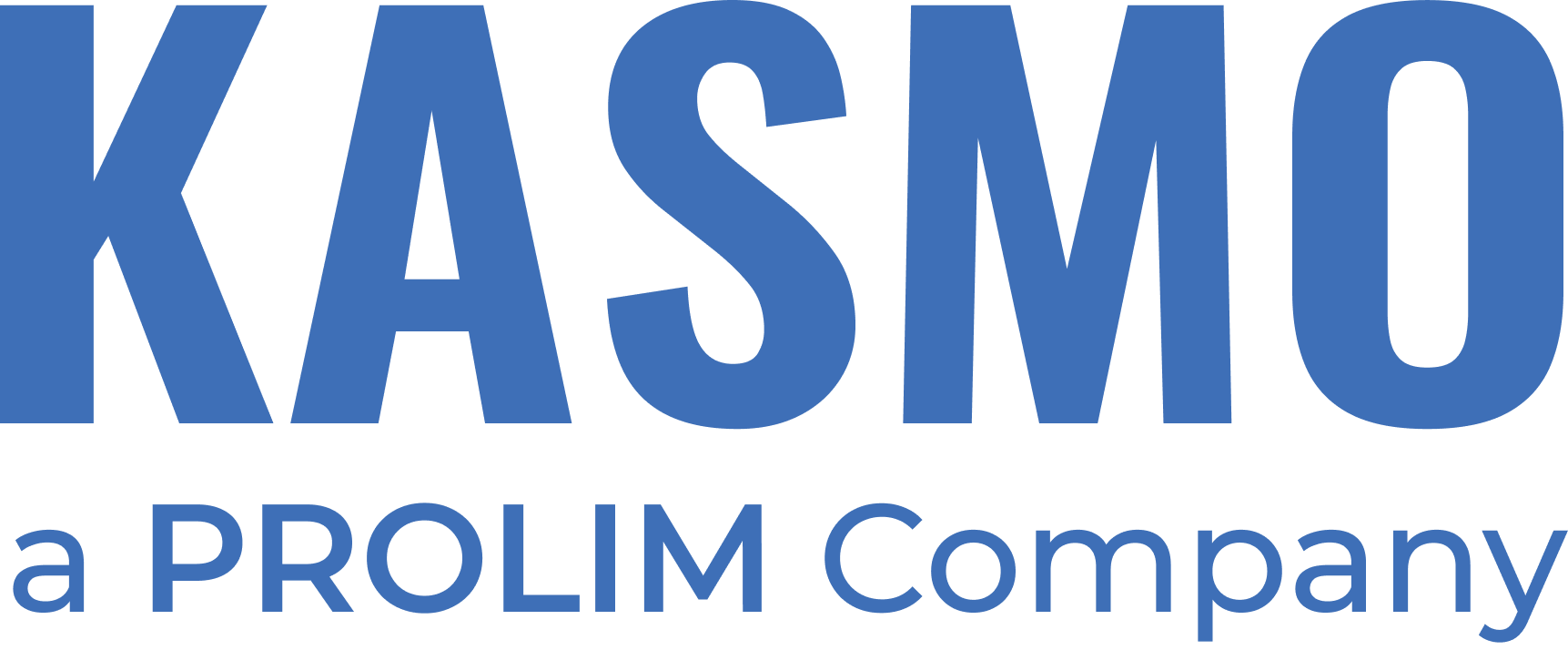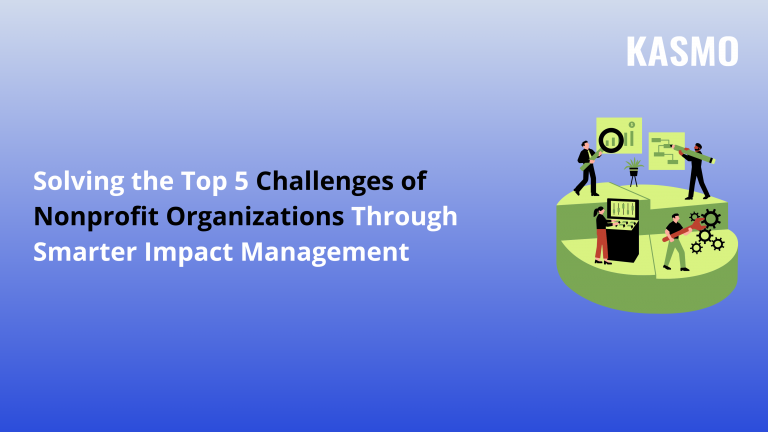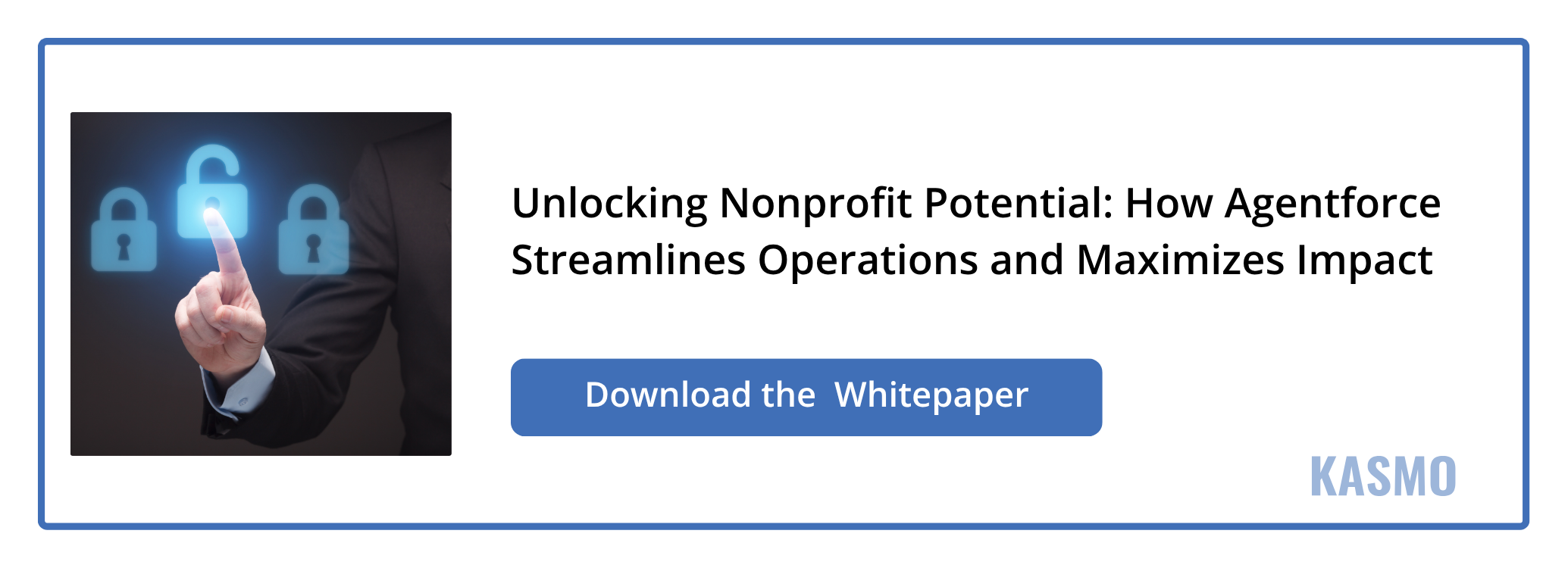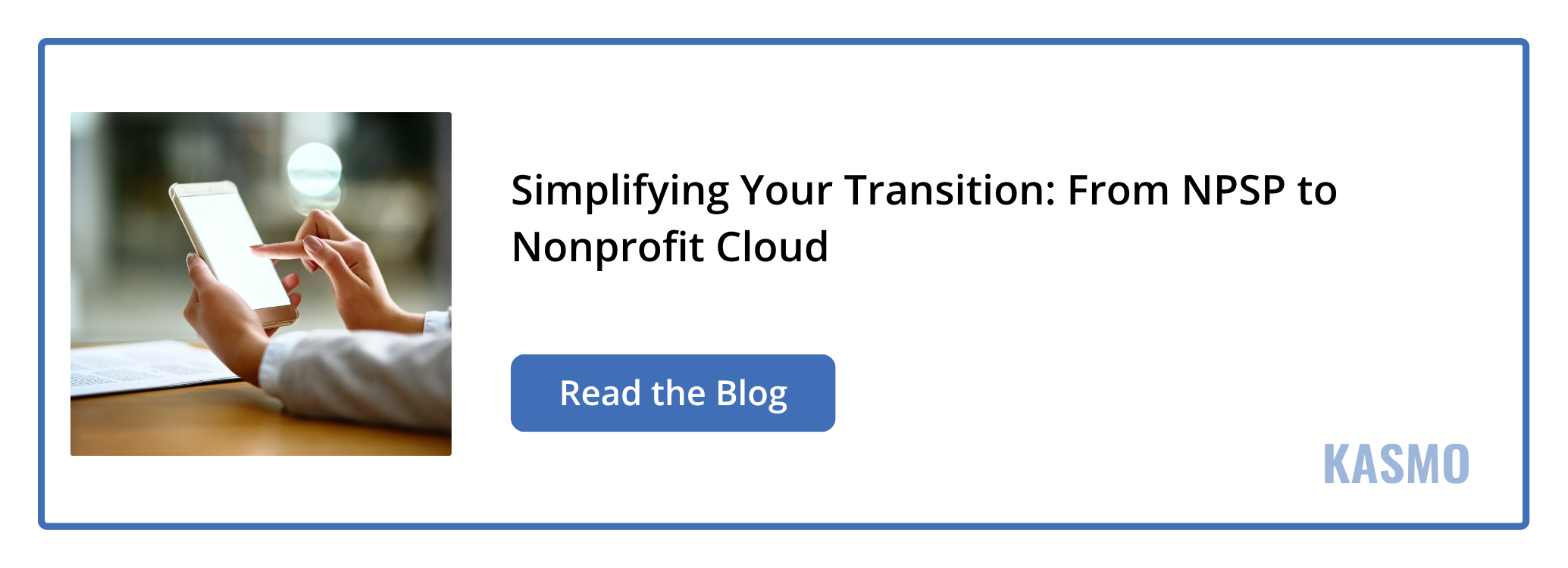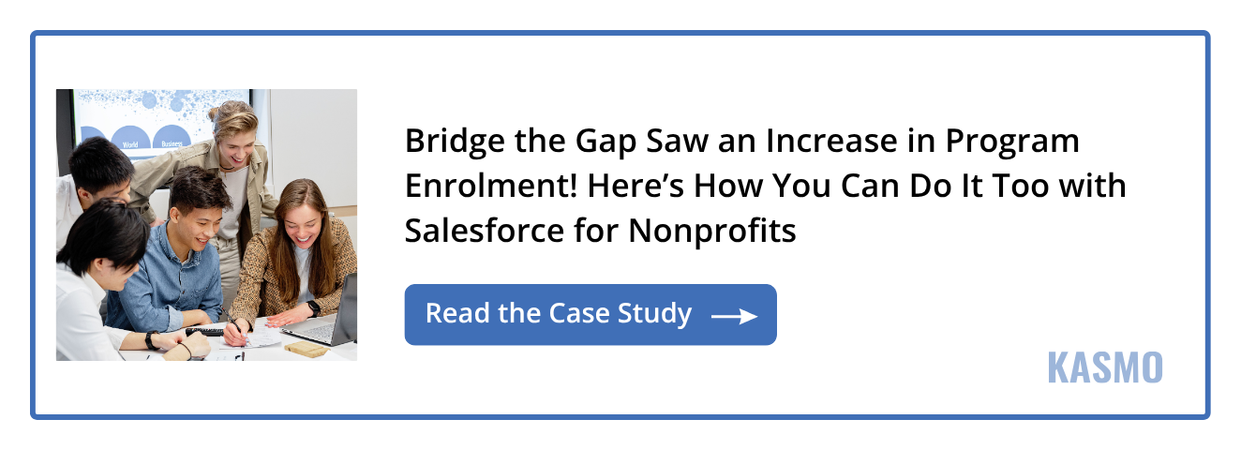Introduction
Nonprofit organizations today are operating in a time of rapid technological advancement and rising expectations from stakeholders and donors. Yet amid this, the challenges of nonprofit organizations continue to evolve – making it important for nonprofits to create a positive impact on society.
However, showcasing what impact nonprofit businesses are creating is difficult. With funding becoming increasingly difficult, the future of nonprofits depends heavily on their ability to prove their effectiveness to their stakeholders and donors. Stakeholders demand transparency and accountability; urging nonprofits to not only do good work but also demonstrate and communicate their results accurately.
This is where many organizations struggle. Without clear evidence of success, it’s difficult to build trust, attract long-term donors, or secure consistent funding. However, by adopting the right strategies and tools to track and share their impact, nonprofit organizations can increase funding and strengthen donor relationships while maintaining transparency to stakeholders.
To stay resilient and relevant, nonprofits must rethink their approach to measure their impact. AI and CRM platforms like Salesforce can be leveraged to unify program data, streamline operations, and enhance smarter decision-making.
How Nonprofit Organizations Can Showcase the Impact to Stakeholders
Here’s how nonprofit organizations can showcase the impact on society they are creating to stakeholders and donors:

Unifying Data
Centralizing programs, donations, and outcomes into a single system can transform how nonprofits manage and communicate impact to their stakeholders. By eliminating data silos, teams can reduce manual reporting, accelerate decision-making, and enhance donor management. This approach strengthens impact management and ensures that fundraisers, program leads, and marketers have access to the insights they need, without compromising sensitive information.
Aligning Fundraising and Program Teams
When nonprofit teams operate in sync, it fosters better communication between fundraising and program teams. Additionally, it also streamlines operations and empowers nonprofits to create more targeted donor engagement activities. Fundraisers can shape proposals around accurate program data, ensuring their outreach is grounded in what’s truly making a difference.
This collaboration not only builds internal team collaboration but also strengthens external donor relationships. Donors appreciate transparency and value knowing their contributions are creating a better impact on society.
Enabling Real-time Reporting
Modern donors expect transparency, speed, and clarity. With access to real-time program data, fundraisers can provide timely updates on how contributions are being used, without relying on manual reporting from program managers. The challenges of nonprofit organizations can be easily eliminated by leveraging platforms like Salesforce for Nonprofits. Organizations can safely share aggregate impact data while protecting participant privacy. This real-time reporting capability helps nonprofits prove their impact, increasing donor satisfaction and boosting retention.
How Nonprofit Trends Can Make a Difference
 Embracing Digitalization
Embracing Digitalization
Many nonprofit organizations are actively investing in AI and AI-powered tools to tackle the evolving challenges of nonprofit organizations and improve operational efficiency. Nonprofits have made significant progress in adopting digitalization. However, there are still some organizations who are yet to adopt AI and AI-powered tools, which makes it difficult for them to streamline impact management.
Shifting Fundraising Strategies
One of the most important nonprofit trends is the shift to a personalized and multi-channel engagement strategy. Using websites, emails, social media channels, and video calls, nonprofits are now using multiple digital channels to connect with stakeholders and donors.
74% of nonprofits have already changed their fundraising strategies to reach more diverse audiences and nearly 40% have expanded the number of fundraising channels they use. This adaptability is key for the future of nonprofits, helping them engage with several donors and unlock new revenue opportunities.
Strengthening Cybersecurity
As nonprofits adopt more digital and AI-powered tools, cybersecurity has emerged as a top concern. The rise in phishing attacks and data breaches shows the immediate requirement to adopt better platforms and technology that will protect sensitive data. A Salesforce research shows that only 24% of nonprofits have a proper response plan in place in case of a breach.
Since nonprofits often handle sensitive data, impact management now includes strong data governance. Organizations must invest in secure platforms, like Salesforce for Nonprofits, and train staff in best practices to avoid reputational damage and donor distrust.
Bridging the Resource Gap
Many nonprofits are facing tighter budgets, rising operational costs, and increased demand for services. Nearly a quarter have had to dip into their reserves and 15% report an inability to meet beneficiary needs. These financial strains are some of the most pressing challenges of nonprofit organizations.
Government support plays a critical role in how nonprofits navigate these limitations. Those with adequate backing are more confident and proactive in their digital investments, while others face steeper obstacles in scaling or sustaining their services.
Leveraging Agentforce
Leveraging Agentforce in nonprofit organizations can help automate content generation, personalize donor communication, and automate repetitive tasks. About 65% of nonprofits are open to integrating AI but feel they need more training, better tools, and strong privacy guarantees. Many nonprofit leaders are eager to leverage Agentforce – to amplify their mission and enhance impact management.
Challenges Faced by Nonprofit Organization
Rising Costs and Financial Challenges
The challenges of nonprofit organizations have increased with the rising cost of living, creating ripple effects across operations, service delivery, staffing, and fundraising. While many organizations have managed to stay afloat, smaller nonprofits are struggling to eliminate their financial challenges – where funding remains the most persistent challenge.
Declining Employee Productivity
With leaner teams and tighter budgets, staff members are spending more time on administrative tasks which leaves less time to focus on more crucial tasks like creating marketing campaigns for donors, maintaining strong relationships with stakeholders and fragmented communication with volunteers. Over 60% of organizations reported facing staffing-related challenges such as recruitment and retention, which affected both day-to-day operations and long-term impact. Without adequate personnel, teams are struggling to scale services or maintain consistent outreach, which in turn hampers impact management and donor engagement efforts.
Slower Adoption to Digitalization
According to the latest nonprofit trends, over 40% of organizations have increased their use of digital tools to streamline operations and foster better collaboration. This shift is breaking down silos, reducing inefficiencies, and ensuring every team is working toward shared goals. However, not all organizations have the budget or skills to make this transition more seamless. Resource limitations, digital literacy gaps, and resistance to change can hinder progress and leave teams overwhelmed.
How to Streamline Impact Management with Salesforce Nonprofit Cloud
Tackling the challenges of nonprofit organizations is no easy feat – however, with Salesforce Nonprofit Cloud and Kasmo’s expertise, now make impact management smoother and easier:
A Unified Platform
For nonprofits struggling to streamline program management, fundraising, and stakeholder engagement, Salesforce Nonprofit Cloud can deliver a comprehensive solution. It helps unify teams, centralize data, and create a single source of truth, enabling organizations to work more efficiently. By streamlining operations across fundraising, marketing, volunteer management, and service delivery, Salesforce makes impact management smarter, faster, and far more effective.
Accelerate Outcomes with Trusted, Purpose-Built Technology
Salesforce empowers nonprofit teams to collect, analyze, and act on unified data, helping them improve donor engagement. With built-in features for program and outcome tracking, Salesforce eliminates the need for disjointed tools and manual reporting, helping teams deliver services at scale while reducing administrative burden.
Nonprofits using Salesforce report a 93% positive ROI, a 29% improvement in decision-making speed, and a 29% boost in team collaboration. These gains make a significant difference for organizations facing the most pressing challenges of nonprofit organizations.
Agentforce for Strategic Decisions
Salesforce is also leading the way in ethical and accessible AI for nonprofits. With trusted predictive and generative AI tools, nonprofits can automate workflows, generate personalized communications, and gain deeper insights into donor behavior and program success. This enables nonprofit organizations to spend less time on repetitive tasks and more time creating change. The AI-powered features, such as Einstein GPT, help organizations refine outreach strategies, optimize resource allocation, and make data-driven decisions.
Conclusion
As the challenges of nonprofit organizations continue to evolve, leveraging platforms like Salesforce for Nonprofits empowers nonprofit business leaders to streamline operations, strengthen stakeholder trust, and improve impact management. Salesforce offers the agility and scale needed to meet both current challenges and future demands in the nonprofit sector.
To maximize the potential of this platform, nonprofits can partner with Kasmo – a global Salesforce Summit Partner. With deep expertise in Salesforce, Kasmo helps organizations implement and customize Salesforce Nonprofit Cloud that aligns with businesses’ unique goals.
Whether you’re looking to centralize program data, enhance donor engagement, or build a scalable impact strategy, Kasmo delivers tailored support, seamless integrations, and long-term value.
